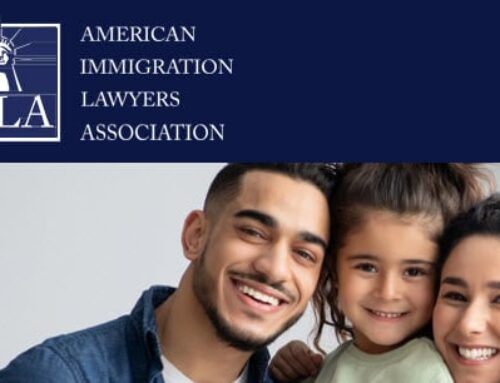U.S. Pathways to Residency
The U.S. provides several pathways for permanent immigration. New permanent immigrants receive a “green card” and become lawful permanent residents (LPRs). Once they meet residency requirements, they are able to become naturalized U.S. citizens. Below are some examples of pathways to residency in the U.S.
Admitting Relatives
The U.S. reunites families and admits foreign nationals who already have a relative in the U.S.
Marriage to a U.S. Citizen: If you are inside the U.S. and marry a citizen, you can apply. Those outside the U.S. also have a pathway through marriage.
U.S. Citizen Parent: Children of U.S. citizens (married or unmarried, over or under 21 years old) may be sponsored by their parent for a green card.
Fiancé of a U.S. Citizen: Fiancé visas are available, but the intent must be to get married to the U.S. citizen within 90 days and subsequently apply for a green card.
U.S. Citizen Sibling: Immigrants with a brother or sister who is a U.S. citizen can be sponsored; however, the wait times for a visa exceed 15 years.
Admitting Workers
The U.S. admits foreign workers to perform labour, so long as there are no qualified U.S. workers available, or you are an individual with extraordinary ability and advanced skills that will benefit the U.S. labour market.
Self-Petition (EB-1): For those with remarkable talents or skills, or those the EB1A category allows for self petition.
National Interest Waiver (EB-2): Individuals with advanced degrees or unique skills that benefit the U.S. can self-petition under this category.
Employment Sponsorship (EB-2 or EB-3): A job offer from a U.S. employer who’s willing to sponsor you can lead to a green card.
Investors
Investment (EB-5)
If you can invest at least $800,000 in a targeted employment area, the EB5 category might be your way.
Diversity Green Card Lottery:
Each October, the U.S. government randomly selects immigrants from countries with low rates of immigration to the U.S. to promotes diversity in the immigrant pool. There are 50,000 green cards available each fiscal year.
Applicants Seeking Protection
Protection from Abuse:
Victims abused by their U.S. citizen spouse or child can seek a green card through the VAWA process.
Asylum / Refugees:
The U.S. provides refuge / asylum for those fearing persecution on account of their race, religion, nationality, membership of a particular social group or political opinion.
U Visa Crime Victims:
Victims of certain crimes who cooperate with law enforcement can apply for a U visa and eventually a green card.
T Visa for Trafficking Victims:
Victims of human trafficking have the option of the T visa and, later, a green card.
Religious Workers:
Those serving in religious capacities might be petitioned by their religious organization for a green card.
Conclusion:
The U.S. has several pathways available to immigrate, whether it be family ties, exceptional skills, or unique circumstances.
This alert is for informational purposes only. If you have any questions, please contact us via email at info@poonahimmigrationlaw.com for further information.




